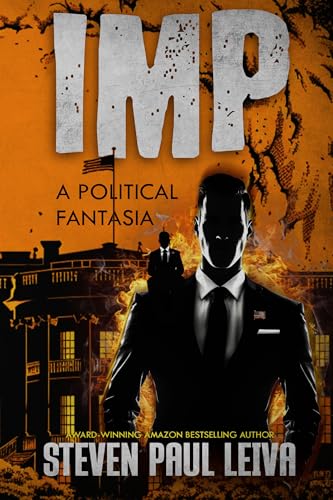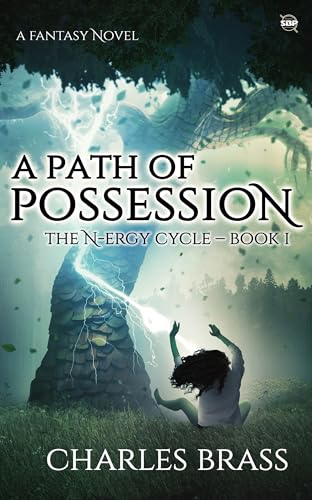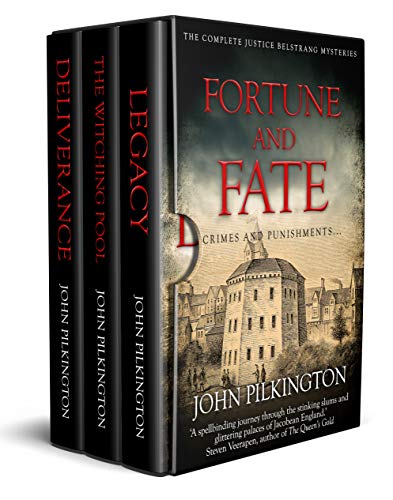On Friday we announced that Truman’s Spy: A Cold War Spy Story by Noel Hynd is our Thriller of the Week and the sponsor of thousands of great bargains in the thriller, mystery, and suspense categories: over 200 free titles, over 600 quality 99-centers, and thousands more that you can read for free through the Kindle Lending Library if you have Amazon Prime!
Now we’re back to offer our weekly free Thriller excerpt:
Truman’s Spy: A Cold War Spy Story
by Noel Hynd
It is early 1950, the midpoint of the Twentieth Century.
Joe McCarthy is cranking up his demagoguery and Joseph Stalin had intensified the cold war. In Washington, J. Edgar Hoover’s FBI is fighting a turf war with the newly founded Central Intelligence Agency. Harry Truman is in the White House, trying to keep a lid on domestic and foreign politics, but the crises never stop. It should be a time of peace and prosperity in America, but it is anything but.
FBI agent Thomas Buchanan is assigned to investigate the father of a former fiancée, Ann Garrett, who dumped Buchanan while he was away to World War Two. And suddenly Buchanan finds himself on a worldwide search for both an active Soviet spy and the only woman he ever loved. In the process, he crosses paths with Hoover, Truman, Soviet moles and assassins, an opium kingpin from China, and a brigade of lowlife from the American film community.
Truman’s Spy is a classic cold war story of espionage and betrayal, love and regret, patriots and traitors. This is the revised and updated 2013 edition of Noel Hynd’s follow-up to Flowers From Berlin. The story is big, a sprawling intricate tale of espionage, from post-war Rome and Moscow to New York, Philadelphia and Hollywood, filled with the characters, mores and attitudes of the day. And at its heart: the most crucial military secret of the decade.
And here, for your reading pleasure, is our free excerpt:
CHAPTER 2
In the third week of December 1949, Washington, D.C. was shivering through its coldest winter in a dozen years. Ice hung from the cherry trees along the Potomac. A mantle of snow adorned both Jefferson and Lincoln Memorials. Even Pennsylvania Avenue, where traffic crawled in both directions, seemed more like New Hampshire than the center of the American government.
In the White House in the waning days of the old decade, things were warmer. Sixty-three-year-old President Harry S. Truman dug in for an increasingly acrimonious battle with the Eighty-first Congress. He fought with the nation’s legislators over everything from increased social security benefits to public housing to his scaling back of military expenses in the post-war era.
If Truman looked for solace in the tide of world events, he found none there. In 1949 the President had succeeded in breaking the eighteen-month Soviet blockade of West Berlin with massive American airlifts of food and medical supplies. But Joseph Stalin was freshly invigorated at home. He had so thoroughly terrified the heads of his puppet governments throughout Eastern Europe that he merrily launched a new generation of purge trials in Russia.
In Asia, the North Korean government made ominous noises about reuniting their country in a manner they saw fit, and using their huge army to do it. Nearby, General Chiang Kai-Shek and his pro-American Kuomintang Army had been driven from the mainland of China to Formosa. The U.S. consular staff would soon follow. In Europe, the Fourth French Republic teetered on the brink of ruin. Even in England, Truman’s final and most loyal wartime ally, Winston Churchill was out of office.
From the perspective of the American capital, enemies were ascendant and friends were halfway into their graves. It was a time when the support of public opinion deserted the President and galvanized around the conservative senator Robert Taft, grandson of the three-hundred-pound former president, as well as the increasingly vocal, hard-drinking, and mean-spirited Joseph McCarthy. There was even talk that if the lid could be kept on the little guy from Missouri for two more years, a possible presidential candidacy by Dwight Eisenhower, the former supreme allied commander, might rescue the country.
Ike was the president of Columbia University. If only he would announce whether he was a Democrat or a Republican, matters would be clarified. I was just five years after a war that compromised all humanity, and already the world was again on its way to hell in a hand basket.
As a final response to Pearl Harbor, the United States had sought to reorganize its intelligence community in 1946. The Japanese attack on Hawaii had taught a lesson. Inquiries during the world war had revealed that there had been significant indications before December 7, 1941, that Imperial Japan was up to something. Crates of documents, retrieved after the fact, had lain around unused and unnoted by American military and naval commanders in the years 1939 through 1941. Information that could have saved thousands of lives had been ignored.
Why? No single effective unit of the government had been equipped to assemble and analyze foreign intelligence. Thus, in the early months of World War II, President Franklin Roosevelt created the Office of Strategic Services, the nation’s first official espionage and counterespionage agency. But after the war the OSS ran afoul of special-interest lobbyists. The military intelligence services and the FBI of J. Edgar Hoover insisted that in peacetime the OSS would only duplicate the efforts of existing agencies. Eventually President Truman came to agree and abolished the OSS
Within a few months, however, the President acknowledged his mistake. Whatever the faults of the 0.S.S., it had been a single agency collecting and evaluating foreign intelligence and sending the information into the Oval Office. Without a central agency Truman received an avalanche of contradictory, superficial reports.
One day, confused, irritated, and ill informed, he exploded to his Secretary of State, James F. Byrnes. “As soon as possible,” raged the President, “we’ve got to get somebody or some outfit that can make sense out of all this stuff!”
Truman expressed the same wish in identical letters sent on January 22, 1946, to his military adviser, Admiral William Leahy, Secretary of War Robert Patterson, Secretary of the Navy John Forrestal, and Secretary of State Byrnes. These four men were asked to consider themselves as the National Intelligence Authority. They were to plan, develop, and coordinate all foreign espionage and counterespionage activities.
Within a few weeks the four had assigned funds and personnel from their own departments to the authority. They formed what they called the Central Intelligence Group. To head the new C.I.G., Truman appointed Rear Admiral Sidney W. Souers as the Director of Central Intelligence.
The appointment caused grumbling in official Washington. Souers was an admiral in the naval reserve and his civilian employment was currently as an executive in the Piggly Wiggly grocery chain in Truman’s native Missouri. He had no experience in intelligence matters. Or, as some Capitol wags put it: “He wouldn’t recognize a spy, but he sure knows fruits and vegetables.”
Yet President Truman wanted a reliable method of being kept informed. So this, for a while, satisfied him. But the setup was unsatisfying to many others, including the directors of military intelligence and J. Edgar Hoover, all of whom continued to fear the erosion of their own powers.
There was also another man who found the arrangement unsatisfactory: Allen Dulles. Dulles had been one of America’s most successful spies during the two world wars. Princeton-educated, from a staunch Republican family, Dulles nonetheless had the President’s ear and friendship.
Dulles agitated for a change in the intelligence system. Dulles had spent World War Two in Switzerland where, as the Swiss Director of the U.S. Office of Strategic Services, he had worked on intelligence regarding German plans and activities. He had wide contacts with German émigrés, resistance figures, and anti-Nazi intelligence officers, many of them staunchly anti-Communist.
Simultaneously, General Hoyt S. Vandenberg of the Army Air Corps succeeded Admiral Souers in June 1946. Vandenberg was named chiefly because he was the nephew of the powerful Senator Arthur Vandenberg, and managed to last only about as long as his predecessor, slightly less than a year. He in turn was succeeded by Rear Admiral Roscoe Hillenkoetter, whom Truman personally didn’t like and whom he privately referred to as “a third-rate navy guy.” America’s new spy establishment, in other words, was off to a staggering start.
Yet, during Hillenkoetter’s tenure, Congress passed the National Security Act, unifying much of the American defense establishment. The act also replaced the National Intelligence Authority with a new structure called the National Security Council. Similarly, the Central Intelligence Group was abolished and replaced by a stronger and more independent unit.
It was called the Central Intelligence Agency.
Its purpose was to gather and coordinate information from outside the forty-eight states. The agency would have no official police or law enforcement powers. And, in turn, the new CIA was to be responsible, in theory, at least, to the National Security Council. President Truman then appointed Allen Dulles, as the agency’s first director.
Thus the embryonic CIA moved into the battered old complex that formerly housed the United States Public Health Service at 2430 E Street in the gashouse section of Washington known as Foggy Bottom.
The complex bordered on an abandoned brewery and sat amidst a squalid jungle of underbrush, enclosed by a wire fence and topped with barbed wire. From this location, and for many years thereafter, little green government buses ferried passengers, frequently mysterious men bearing secret messages or documents, to and from the Pentagon and the White House. And at this humble inception, the one-hundred forty-acre spread that would eventually house the CIA in bucolic Langley, Virginia, was merely a gleam in Allen Dulles’s eye.
But it was a beginning. And like most beginnings, it had its awkward moments.
CHAPTER 3
Unlike the relatively new Central Intelligence Agency, the Federal Bureau of Investigation in was housed in baronial splendor toward the end of 1949. The headquarters were at Constitution Avenue and 10th Street, in a suite of fifth and sixth floor offices at the Department of Justice. J. Edgar Hoover presided from a corner throne room, surrounded by his ablest assistants in adjoining chambers. This was a straight-arrow squeaky-clean place with light green walls, deep pile carpets, mahogany paneling, and countless American flags. A visitor to the Director’s office, if he were kept waiting in the anteroom, would be faced with an armada of plaques—given by various religious, fraternal, school, and state police organizations—that heaped praise upon the Bureau and its Director. A revolving rack carried scores of pro-FBI editorial cartoons, mounted individually on hard cardboard backing. If these displays left the observer ready for more, there were also some of the more macabre relics of earlier Bureau adventures.
John Dillinger’s death mask, for example, was in a glass case in the same anteroom, along with the straw boater Dillinger wore when gunned outside a Chicago movie theater. Completing the display was the Corona- Belvedere cigar from the pocket of Dillinger’s bloodstained, bullet-ridden shirt.
Yet behind the scenes, the Bureau increasingly reflected the disparity between the public image and the gritty, sweaty, day-to-day operation of American law enforcement. Though the Director was an American folk hero, Hoover had never led an investigation and had never personally made an arrest. Despite being photographed weekly with an array of weapons, he had never learned to use a handgun. Yet the image of the Bureau before the public had never been more immaculate.
Hoover flitted about the country at his own whim, stayed in the finest hotels as a guest of management, and had his picture snapped hobnobbing with celebrities such as Milton Berle, Shirley Temple, Toots Shor, Bing Crosby, and Jimmy Cagney. Hoover always loved Cagney for his performance as an FBI agent in the 1935 Warner Brothers production, G- Men, a film that molded public perception of the Bureau. And the weekly radio serial, This Is Your FBI, remained a hit in its sixth year on the air.
The Bureau reflected Hoover’s personal biases: he loved capital punishment in all forms, he hated the fact that women could now vote, and didn’t care for people of color. He threw around insults with great freedom: “pinhead,” was a favorite for an agent who was falling into disfavor or soon to be sacked.
There were few far right causes he couldn’t champion. Almost daily the FBI was preoccupied with cases of a political slant or which emanated from a political favor. Hoover, completely ignoring the FBI’s charter, personally assigned FBI agents to gather domestic intelligence on people he didn’t like or whom he suspected of un-American activities.
In October 1949, for example, eleven members of the Communist Party of the United States had drawn prison sentences of three to five years apiece for advocating the violent overthrow of the United States government. They hadn’t done anything other than express their opinion. But in the climate of the day, that was enough to land them in prison.
The second perjury trial of Alger Hiss was concluding in Manhattan, also. All indications were that Hiss would go to prison too. The best was yet to come, however, as a section of Bureau spear carriers on the fifth floor inquired into the affairs of one suspected Soviet spy, a disloyal American named Martin Sobell. The investigation of Sobell had also suggested some other American accomplices named Julius and Ethel Rosenberg.
After the war, the U.S. had tried to protect its nuclear secrets. But American had been stunned by the speed with which the Soviets had initiated their first nuclear atomic test, “Joe 1”, on August 29, 1949. The consensus: atomic secrets had been leaked from the American research labs. Whoever had done it was going to pay a big price. That much was a “given.”
On these same premises, in a small, stuffy office in a far corner of the sixth floor, Special Agent Thomas C. Buchanan sat at a black Royal typewriter. He typed out his final account of an investigation involving a securities swindle. Recently put out of business were a pair of Miami-based land developers who had raised money and sold home sites from the Catskills to Sarasota. It was the kind of a case—hundreds of small investors burned by a pair of slick carpetbaggers —that provoked Buchanan’s righteous indignation. The case had ended with indictments, convictions, tons of favorable publicity for the FBI, and the recovery of almost sixty percent of the loot. Within the next month, checks would go out to most of the investors. Buchanan was proud of his work.
He stopped typing for a moment. Buchanan reread his report. One could never be too careful in choosing one’s words. Not only did Buchanan’s immediate superior, Francis W. Lerrick, Assistant Director for the mid-Atlantic region, read all completed files, but Hoover also liked to read reports at random. Here trouble could materialize from nowhere. Hoover’s attention might settle upon anything. One ten-year veteran of the New York office was abruptly transferred to Topeka when his report contained a quote from a Canadian ballistics expert who’d been used as a witness during a trial.
“We keep all foreigners out of Bureau business!” Hoover had said in an aggressive memo.
On another occasion a Special Agent in Atlanta found himself ordered to lose fifteen pounds in three weeks. A final case report had included his medical records, revealing his six-foot one-hundred-ninety-five-pound stature. Hoover had been placed on a diet by his own physician the previous Monday.
Buchanan typed the final two paragraphs. He leaned back in his chair and carefully reviewed the report from start to finish.
Had anyone walked into the office at that time, he or she would have seen a sandy-haired man of thirty-two, a handsome very American looking guy with a square jaw and dark blue eyes. He wore a white shirt and a red and blue striped tie. The jacket of his navy blue suit was draped over the back of his chair and his brimmed fedora, mandatory for all special agents, rested on a coat rack in the corner.
If it had it not been for a turn of fate and the course of history, Buchanan might have been the architect he’d planned on being when young. He had grown up in a comfortable town in the southeastern quarter of Pennsylvania. His mother was the daughter of anti-Fascist immigrants from Italy. From her he learned to speak Italian as a boy. She had come to America as a teenager and now taught the third grade in the local school. His father had been a medical doctor in family practice.
As a teenager Thomas had shown an uncanny aptitude for numbers, sciences and languages. He had set his heart on going to Princeton University, his father’s alma mater.
The turn of fate: A massive heart attack claimed Thomas’s father at age forty-three in August 1932. His mother moved the family closer to Philadelphia, where they took up residence with his mother’s unmarried sister. Thomas was enrolled at a private academy in Chestnut Hill, in accordance with his father’s will. Here he demonstrated again his exceptional aptitude in sciences, math, and language. He took up French and built an impressive academic record.
Princeton accepted him as a full-tuition student. Lehigh University, however, offered him a full scholarship in engineering. This was 1936, and his father had not died wealthy. He went to Lehigh, graduated with high honors with a minor in Romance Languages. He wished to continue on for his graduate degree in architecture.
Then the course of history interfered. The Second World War began.
Buchanan served as an infantry captain in the United States Army’s North African and Italian campaigns. He was part of the 1st Armored Division which participating in Operation Torch, a combined British-American pincer operation against Rommel in North Africa. The allied operation outflanked and outgunned their German, Vichy French and Italian adversaries. They bypassed the Axis defense on the Mareth Line in late March 1943 and squeezed the Axis forces until Axis forces in Africa surrendered in 13 May of 1943. The invasion of Sicily followed two months later, during which Buchanan won two silver stars and as many purple hearts. It was, by the terminology of the time, a “great” war, for Thomas Buchanan. Privately, he was happy to have survived it. He never expected to.
As an American officer fluent in Italian, he became an interpreter for his unit, as well as an adviser to the command of the American Fifth Army, following a transfer to a unit where he was needed for his language skills.
His unit encountered dogged resistance from retreating German forces as they moved north. But Buchanan had been among the first American soldiers to reach the center of Rome late night on June 5, 1944, initiating the liberation of the magnificent ancient city. Rome had been the first of the three Axis powers’ capitals to be taken. Its recapture was a significant victory for the Allies and the American commanding officer who led the final offensive, Lieutenant General Mark Clark.
In Rome the next day, more units of English and American troops rolled in. Massive crowds came into the streets, celebrating, cheering, waving and hurling bunches of flowers at the passing army vehicles. Later, Buchanan watched as Pope Pius XI appeared on the balcony of St Peter’s and addressed the thousands of Italians who had gathered in the square. It was a giddy time, marking a turning point in the war. Almost simultaneously, the Allied invasion of Normandy was taking place, also.
Buchanan stayed in Rome for three months. Then, his reputation as an interpreter growing, he was sent to Paris shortly after that city’s liberation. He was assigned to an intelligence unit, working with officers of de Gaulle’s Free French forces, as well as with the American command. He was next and finally sent on to Berlin, where he worked again in intelligence. For four months he worked daily with officers of the Soviet Red Army, mostly tank and artillery commanders who had helped capture the city. At first, he liked his Russian peers. Quickly, however, he grew to distrust them.
Berlin in those days was a crucible for Buchanan, a learning experience he would never forget. The city was devastated. Utilities functioned sporadically. Civilians wandered in sullen crews, dazed and confused, clearing the streets and looking for missing relatives. Piles of rubble made driving hazardous. A few diehard snipers made any movement even more hazardous.
But the similarities between the four parts of the divided city ended with the physical ruin. The different sectors —- American, British, French and Soviet — reflected the languages and cultures of the occupying forces. West Berlin was an island within the larger East German zone of Soviet occupation. It had a free press and cultural and economic links with the outside world. From the beginning, Soviets confiscated the newspapers licensed by Western occupation authorities. Soon thereafter, they declared the western newspapers “contraband” and arrested anyone in possession of one. They quickly began to tell their people that the occupiers were new fascists, which “explained” why most German Army and intelligence people and scientists had tried to surrender to the British and the Americans. Buchanan, in dealing with the Soviets, quickly learned what a big fat lie their entire system was.
In the bargain, he acquired a skill in the Russian language and learned some subtleties about the American’s wartime ally “of convenience,” such as the difference between Red Army intelligence and the secret state police. In the larger bargain, he got a close candid view of how the Soviets set up little spy cells in the west, the espionage tradecraft often following in the larger path of black market activities and bribes. He had seen the same thing in Rome with the underworld people who had moved in quickly after Mussolini’s soldiers had retreated.
When he left the military with an honorable discharge in early 1946, he was restless, as well as haunted by the war. His experiences were never far from his thoughts. At a V.F.W. meeting, he ran into a retired colonel who had commanded his unit in Sicily. The colonel told him that the Federal Bureau of Investigation was hiring.
“The work can be interesting and the employer isn’t likely to go out of business,” the colonel had said. “If you decide not to make a career of it, it still won’t look bad on your résumé. I know some people, Tom. I’ll write you a letter of recommendation.”
Buchanan entered the Bureau’s training school, in April 1946. A fourteen-month tour in Chicago was his first assignment where, by chance, he occasionally partnered with an old Army buddy, a fellow officer whom everyone called “The Bear.” The latter, a fellow officer, had also served in Italy and who had also joined the Feds. It was a pleasant and fortuitous reunion.
Aside from that, Buchanan didn’t have the commanding physical presence or bulk that typified many enforcers of American law, nor did he have the traditional gang busting mentality for which the “G-men” had become the heroes of the gullible public and tabloid press. But he did have an outstanding analytical intellect, a persistent nature and a remarkable instinct for analyzing a crime scene. This he coupled with an easy, calm, honest manner which was his basic nature, though those who knew him best knew he had his flashpoints: He could resort to quick explosive physical force when pushed too far. The overall equation inspired confidence in people and made them willing to talk to him. As a result, for his age, Buchanan was as fine a detective as the Bureau had to offer.
And yet, and yet.
He also felt unsettled, a man in transition, but from where to where? The war had deeply disturbed him. He found few people he could discuss it with other than fellow veterans. There was pain that he felt but couldn’t describe, things that had happened in combat that he chose not to remember, and faces of enemy soldiers, some alive, some in death, that he wished would go away but which he knew never would. All of this, he battled every day. Socially, he was normal and perfectly presentable. Privately, he felt his psyche was in tatters and the war had turned him into a reclamation project. But if that was the case, so it was the case with most of the world, and almost everyone who had survived the fighting. So he kept it all inside him, as much as he could.














